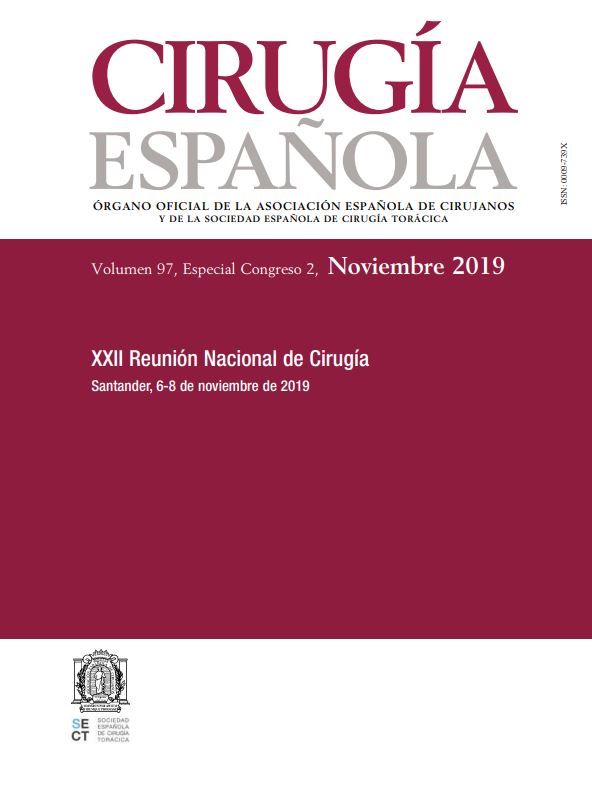P-361 - CORRELATION BETWEEN ANASTOMOTIC LEAKAGE AND RECURRENCE IN RECTAL CANCER. EXPERIENCE OF A SINGLE CENTRE
Hospital de Madrid Norte-Sanchinarro, Madrid.
Introduction: Whether anastomotic leakage has a negative impact on recurrence of rectal cancer is a matter of debate. We analyze factors associated with the occurrence of anastomotic leakage and its impact on the cancer recurrence after surgical resection.
Methods: Patients treated with total mesolectal excision (TME) and primary anastomosis for rectal cancer between October 2011 to August 2018 at Sanchinarro University Hospital, were retrospectively reviewed. Patients with metastatic desease, emergency surgery, synchronic tumor and patients lost to follow-up evaluation were initially excluded. Preoperative, intraoperative and postoperative data were retrospective collected.
Results: Of 180 patients, 26 (14.4%) patients had anastomotic leakage. Anastomotic fistula occurred in 26 patients (14.4%); 6 patients had a grade B fistula that was managed conservatively, while 14 patients experiment a grad C fistula that required an emergency surgery. No differences was found between the group of patients with anastomotic leakage and the group without anastomotic leakage with respect to age, sex, BMI, ASA, surgical approach, initial stage, postoperative stage, TRG, and adjuvant therapy. The median hospital stay was significantly longer in the leakage group (median: 18.9 vs 8.7 days, p < 0.001). Thirty-one (17%) recurrences were identified among all patients. Disease-free survival was significantly shorter in the anastomotic leakage group compared to patients without anastomotic leakage, 63% vs 86.4% respectively (p < 0.001). Overall survival resulted 96.1% in patients without anastomotic leakage and 88.5% in the anastomotic leakage group for OS (p = 0.029).
Conclusions: Anastomotic leakage after TME in rectal cancer is significantly associated with an increased rate of local and systemic recurrence and shorter overall survival.








